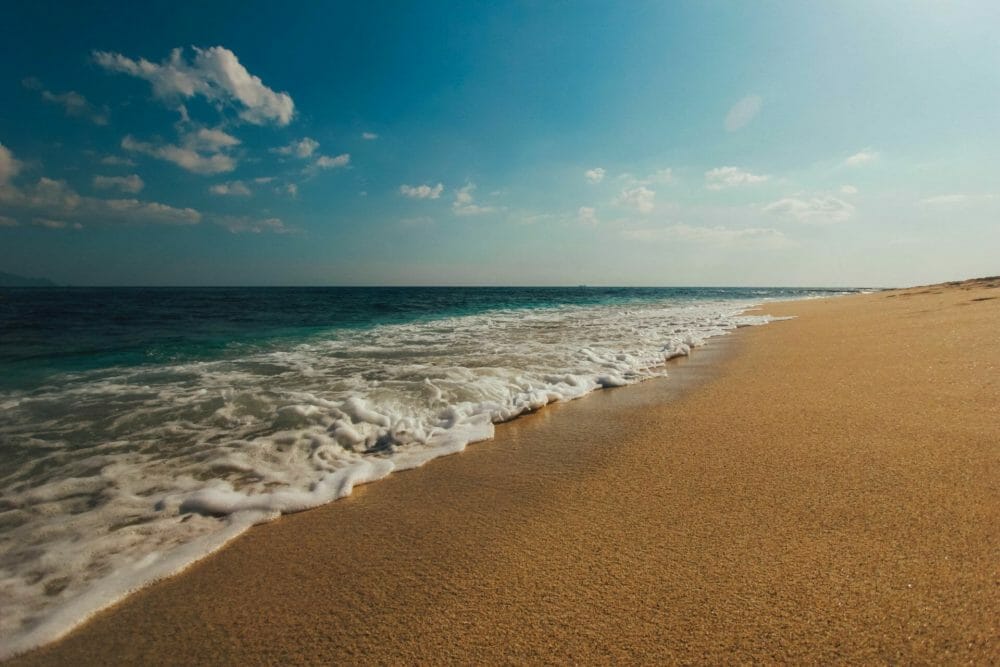Editor’s Note: This article was jointly written by Kirchner Group and Red Sea Farms on the back of their collaboration announcement late last month. Blair Kirchner is managing director and co-head of impact activities at Kirchner Group, a merchant banking firm based in Birmingham, US.
When the Red Sea Farms team arrived at the Entrepreneurship World Cup (EWC) Global Finals in November 2019, no one knew exactly what outcome to expect. The company had closed its seed fund round earlier in the year, and making it into the top 100 out of 100,000 teams was an accomplishment in and of itself. However, when the team successfully progressed through each round up to the top five, Red Sea Farms’ co-founders Prof. Mark Tester and Dr. Ryan Lefers could feel momentum building. They had worked tirelessly alongside their mentor, Steve Dauphin from Kirchner Group, after each round of the competition to debrief and refine the pitch. This experience sparked a game-changing collaboration between Red Sea Farms and Kirchner Group.
“It was clear we were aligned in terms of purpose: addressing global food security,” said Dauphin. Red Sea Farms went on to win third place in the competition and Dauphin joined the company’s advisory board not long after. “It was an obvious and natural next step,” he remarked.
While the world has changed drastically since November, the challenges of food security and feeding a growing population remain. Issues related to local food production and the food-water-energy nexus are part of the daily conversations at Red Sea Farms.
Now, as the world is faced with one of the biggest threats of global food security with the arrival of Covid-19, local food production has become even more critical for building self-sustaining communities. The world can no longer ignore how fragile our global supply chain is. Collective dependency on global trade means significant vulnerability when borders close and supply chains are disrupted. These disruptions restrict communities’ access to nutritious sources of food. Countries that are freshwater-scarce with harsh climates feel the impact most acutely, as they struggle with growing locally and are therefore dependent on imported food.
The United Nations stated that “coronavirus disruptions could double the number of people globally without reliable access to nutritious food, to 265 million”. Islands and countries with underdeveloped agriculture industries are the most vulnerable to the CV19 pandemic. The opportunity to “grow local” and “buy local” is vital for re-globalization.
But how can we “grow local” in places where agriculture is not self-sufficient due to climate challenges or freshwater scarcity? That is the same question King Abdullah University of Science and Technology’s (KAUST) Tester and Lefers sought to address when they founded Red Sea Farms in 2018. Red Sea Farms is a saltwater agriculture start-up spinout from KAUST. “Our team has developed smart sustainable agriculture systems that will ensure food security during future global crises such as CV19,” said Tester.
Their mission is to unlock saltwater for sustainable agriculture to help feed the world. Agriculture represents the largest drain on global freshwater resources; however, there is an abundance of saltwater. Through the combination of engineering and plant science, Red Sea Farms has created and developed solutions to replace freshwater with saltwater in agriculture systems. Saltwater is used to both efficiently cool greenhouses through engineering innovations and irrigate the salt-tolerant, non GMO crops through developments in plant science.
Red Sea Farms’ patent-pending technology enables greenhouses and hydroponic farms to grow more and better food with 80-95% less water and 2-6 times less energy. Red Sea Farms together with Kirchner Group have developed an agricultural enterprise that brings together decades of business creation and operational experience with numerous novel saltwater agricultural technologies for the purpose of enabling local production of fresh fruits and vegetables in fresh-water-constrained regions of the world.
Red Sea Farms raises $1.9 million to grow tomatoes in the desert using saltwater. Read more here.
Kirchner Group is a boutique advisory, operational and asset management firm founded in 1985 that has always had a focus on the agriculture and food sector which includes working with companies addressing global food security. Kirchner through its enterprise development model, leverages its operational expertise to help companies like Red Sea Farms scale.
”When we began mentoring Red Sea Farms at the EWC, I was immediately impressed with the technology, the excellent early commercialization work done by KAUST, the talent and coachability of the team, and the important opportunities in front of them. Given the excellent initial rapport and the alignment of interests, it was almost inevitable that we would end up working together after EWC,” commented Dauphin.
Kirchner’s early work with Red Sea focused primarily on business model refinement, intellectual property management, and potential joint venture structures. But because of Covid-19 and the renewed interest in local food production, the collaboration is increasingly focused on removing barriers to rapid scalability and preparation for fundraising from both agtech capital sources and impact capital sources.
Given the potential of this breakthrough technology platform to reduce hunger risk and supply chain challenges in regions of the world with limited fresh water supply, there is both an ethical burden to proliferate Red Sea Farms’ solutions quickly and sustainably, and also a commercial necessity to do so profitably and efficiently.
As a result of innovative technology, a timely collaboration, and an unforeseen global crisis, Red Sea Farms sits at the forefront of solutions to a number of issues related to growing food in water scarce and harsh condition regions around the world which reduces the dependencies on sometimes fragile supply chains. As the world emerges from the pandemic Red Sea Farms is poised to be a key piece of the global food security puzzle for years to come.





